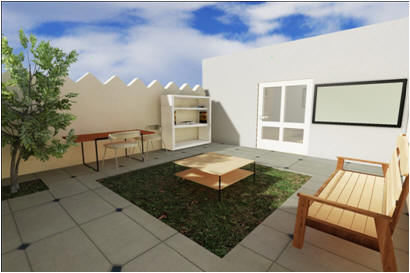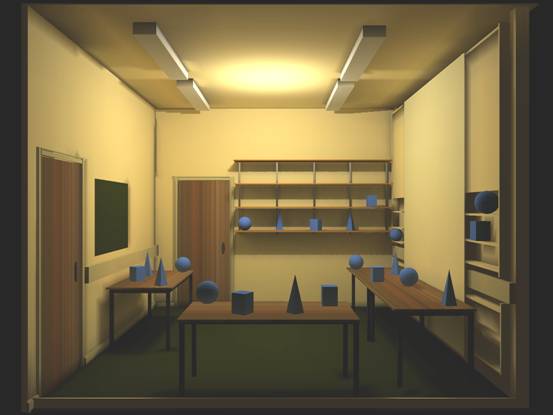Katerina Mania, Ph.D
Research
While at TUC THALIS CYBERSENSORS: High Frequency Monitoring System for Integrated Water Resources Management of Rivers (GSRT-EU-GR, 2011-2014)
TUC Dept of Electronic and Computer Engineering TEAM
Prof. Michalis Zervakis
Dr. Euripides Petrakis
Dr. Katerina Mania
Implementing Interactive Neuroscientific Protocols for fMRI Experiments exploring Social Exclusion (TUC, 2012-2014)
PI
Dr Katerina Mania
Prof. Hugo Critchley, Prof. Neil Harrison
Brighton and Sussex Medical School
Sackler Centre for Consioussness Science
Dr Phil Watten
Department of Informatics, University of Sussex
http://schema-project.com/HRAKLEITOS II: Selective Rendering Algorithms based on Memory Schemas (GSRT-EU-GR, 2011-2014)
PI
Dr Katerina Mania
Collaborators
Dr George Drettakis, INRIA Sophia Antipolis
Dr Douglas Cunningham, Technical Univ. Cottbus, Germany
Exploring Behavioural Fidelity of Lighting Simulations through Neuroscientific and Clinical Imaging Science Metrics for Normal and Patient Populations (TUC, BSMS, 2010-2011)
Collaborators
Dr Katerina Mania
Dr Nick Medford, Prof. Hugo Critchley, Dr Eugenia Radulescu
Brighton and Sussex Medical School
Sackler Centre for Consioussness Science
Dr Phil Watten
Department of Informatics, University of Sussex
Fidelity Metrics based on Perceptual and Cognitive Impact of Head-Tracking Latency in Ecologically-valid Immersive Synthetic Simulations with Applicability to Training Simulation towards efficient Man-Machine Interaction (TUC, on-going)
PI
Dr Katerina Mania
Collaborators
Dr Eftichios Koutroulis
Real-time selective Rendering Algorithms based on Spatial Cognition (TUC, 2007-2009)
PI
Dr Katerina Mania
Collaborators
Dr Matthew Coxon, St York University, UK
Equipment grant for the purchase of an Immersive Head Mounted Display, Stereo capable, with Binocular Eye Tracking (TUC, 2011)
PI
Dr Katerina Mania
While at the University of Sussex, University of Bristol, UK Quantifying fidelity for virtual environment simulations employing schema assumptions (EPSRC-UK, 2004-2007)
PI
Dr Katerina Mania
Collaborators
Prof. Tom Troscianko, University of Bristol, UK
Dr Rycharde Hawkes, HP Labs, Bristol, UK
Post-doc researcher
Dr Nick Mourkoussis
Latency detection and adaptation in Virtual Environments (EPSRC-UK, 2003)
Travel Grant to fund sabbatical at NASA Ames, USA
PI
Dr Katerina Mania
Excellence in Processing Open Cultural Heritage, EPOCH (2004-2008, EU Framework 6, Network of Excellence, 2004-2009)
http://www.epoch-net.org/
PI
Dr Martin White, University of Sussex, UK
Virtual Reality and Virtual Environment applications for future workspaces, INTUITION (2004-2008, EU FP 6, Network of Excellence, 2004-2009)
http://www.intuition-eunetwork.net/
PI
Dr Martin White, University of Sussex, UK
MAVERIK: The Centre for VLSI and Computer Graphics (EU FP5, 2001-2004)
Marie Curie Training Site
Human Factors in Distributed Virtual Environments (Hewlett Packard Laboratories External Research, 1997-2000)
PI
Dr Katerina ManiaResearch interests are
- Selective Rendering based on Spatial Cognition
- Human Computer Interaction issues in Virtual Environments
- Human Factors, User interfaces, Usability Engineering
- Perceptually-based computer graphics rendering
- Image quality metrics
- Selective real-time computer graphics rendering
- Global illumination
- Human centred fidelity metircs for computer graphics simulations and advanced displays
- Spatial awareness in architectural visualisation
- Latency discrimination and adaptation with Psychophysics methodologies
- Interface design related evaluation metrics (3D/2D)
- fMRIE/ERP data and awareness states in synthetic worlds
- User Eye movements in an artificial world - Eye tracking
- Distributed and embodied Virtual Environments
- Ambient Intelligence and Technology-enhanced Real-world spaces
- Computer graphics for heritage and educational applications
- The sense of perceived Presence in Virtual Environments
- Human motor responses such as vection and their relationship with latency and motion sickness
- User representation related to bodily sensor data
- Virtual Environments for dyslexia
Tel: +30 28210 37222 Fax: +30 28210 37542 E-mail: k.mania@ced.tuc.gr













